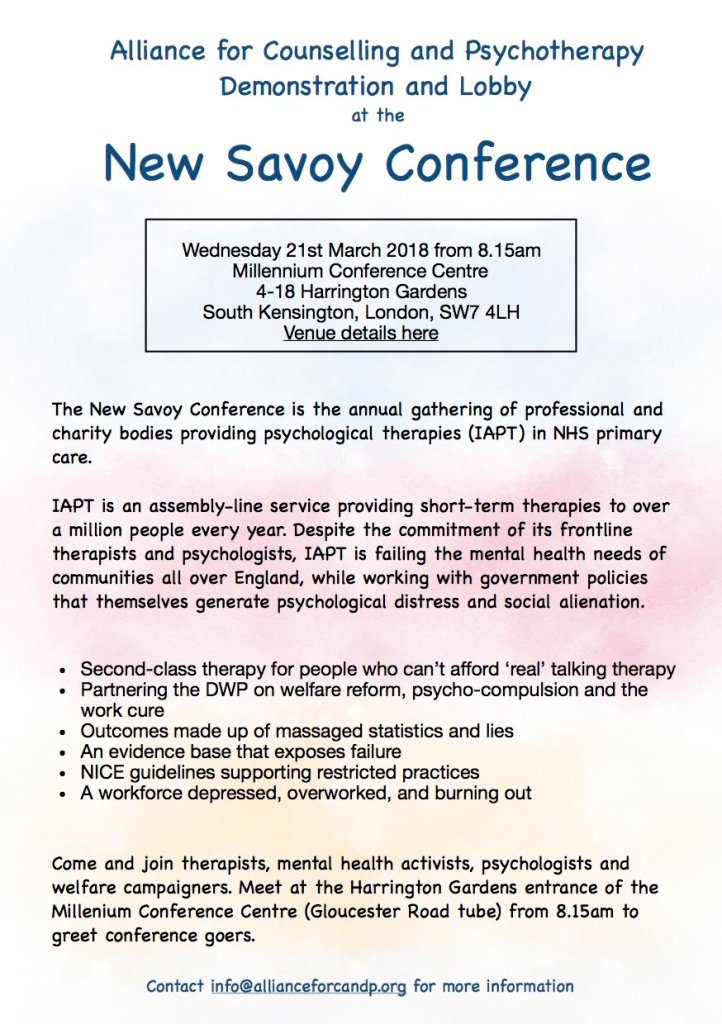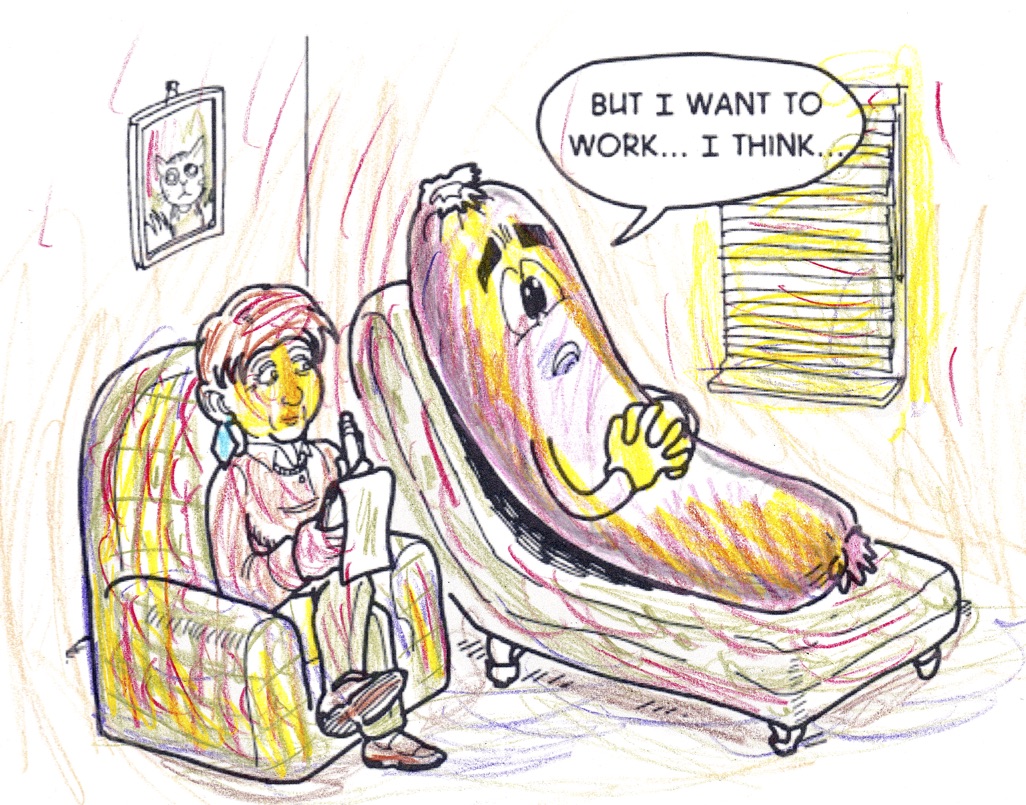We are a group of psychotherapists offering free psychotherapy to people on low incomes. Since 2014, we have been developing our own ways of doing no-fee work and we are supporting each other in the experience. We would like other qualified psychotherapists and counsellors to join us in building the network.
We envisage a loose, mutually supportive, network of practitioners offering their time, experience and energy to their local communities in whatever settings work for them. This might be through individual or group sessions, through facilitating peer-support groups or by working with existing community groups.
We are not talking about charity, nor are we interested in this government’s bogus vision of ‘the big society’. We see ourselves as contributing to a broad movement of activism, pressing for social justice and community values in response to the social injustice and cynical market values that seem to have a tightening grip on our society.
We support the provision of psychological therapies by the NHS. But, for the moment, we see little hope of a turnaround in the recent cuts to NHS services – in particular, cuts to the open-ended talking therapies.
We believe that the state of our emotional and psychological lives is as fundamental as our material standard of living – our incomes, our physical health, our working conditions, our education and housing. They are clearly inseparable, though not necessarily in a simple way. We know that money doesn’t buy happiness any more than poverty destroys the possibility of love and a creative life. But we do live in a society whose dominant political and cultural messages seem to us to overvalue money, profit, property and consumption, while at the same time undervaluing the quality of our emotional lives and relationships with our families, friends, co-workers, neighbours and wider communities.
Inequality of wealth, income and power are growing in the UK. In some respects, they are becoming more deeply and subtly entrenched in the way we think about ourselves and the meaning of our lives. We believe that it is as essential to a decent life to feel that we have the power to influence the way we live and can find the courage to live well with ourselves and each other, as it is to have basic material security. Gross inequalities of social, economic and political power corrode mental as well as physical health for everyone.
The intersection of class and racial inequality is a powerful dimension in patterns of social injustice and mental ill-health in the UK. We recognise the disparities of income and basic social resources experienced by BAME communities, alongside the pain and trauma of institutionalised racism, overt racist aggression and the encouragement by our governments of a hostile environment towards people of colour. The racial violence of our criminal justice system and the UK’s immigration and asylum policies have been highlighted recently by the Black Lives Matter movement and other anti-racist campaigners. The FPN supports anti-racist campaigns and recognises the critical role of racial hatred and discrimination in the mental ill-health of our society.
We also support the need for more therapists from minority ethnic communities, and the development of better intercultural and race awareness in the training of counsellors and psychotherapists.
In general, we believe most people find the rapport and understanding they need to live well in their everyday network of friends, family, colleagues and community. A significant minority, however, find themselves struggling in relative isolation with painful and debilitating experiences of anxiety, fear, depression or self-doubt. Usually, the sources of such psychological difficulties are environmental – poverty, early trauma or abuse, family breakdown. All too often the people struggling with psychological insecurity are also struggling with financial and social insecurity.
We want to work with local communities by supporting people who would benefit from the experience of practitioners, who cannot get the kind of support they need from their GPs or from voluntary services, and who do not have the money to pay for psychotherapy. We want to work, as far as possible, from local bases in communities we are connected to. We want to encourage people to collaborate, support each other and share experience and understanding of psychological difficulties. We will work with people as psychotherapists, but also as equals in the common experience of wanting to understand ourselves and others better, and to live our lives with more freedom, more creativity and more responsibility toward the common good.
How you can get involved with the network:
* If you are already involved in free and/or low-fee work as a qualified practitioner and you support the ethos of the network, you could join us by sending a short statement about what you are doing, its setting and the social/political perspective you hold about the work. With your permission, we could add your statement to the website and connect you with other therapists interested in developing support for each other.
* If you are interested in starting a project or you want some support for an existing project, get in touch with us and we will think about how we might be able to help.
* If you want to support the network in some way – by getting involved in existing work, offering ideas for community projects, thinking about the clinical implications of working for free, setting up support groups for no-fee practitioners, or simply by endorsing the philosophy of the network – get in touch with us.
Email us at freepsychotherapynetwork@gmail.com
Please include your email address in the body of your message. Thanks.















